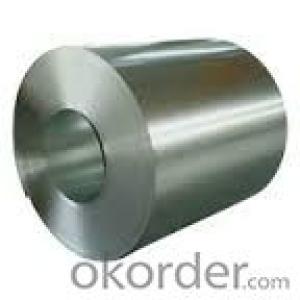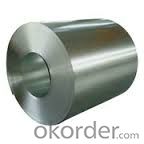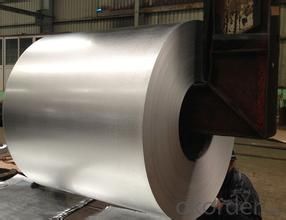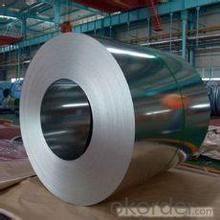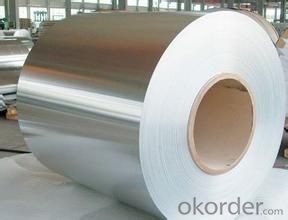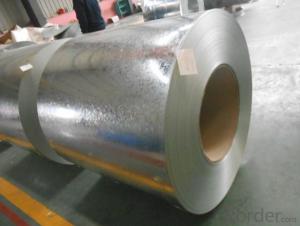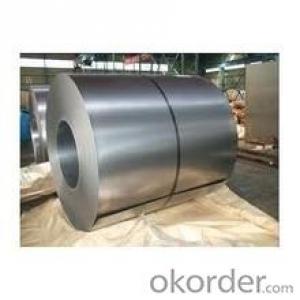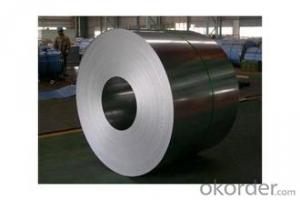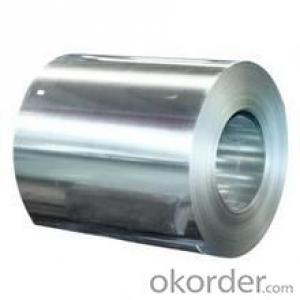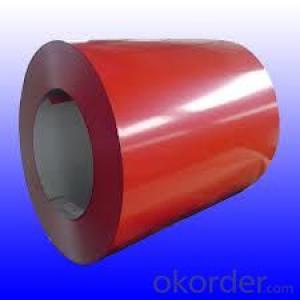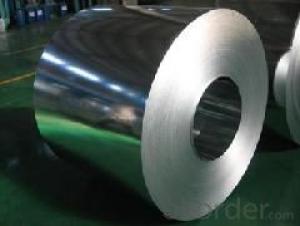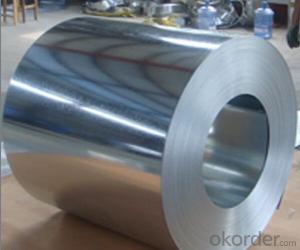Hot-Dip galvanized/ aluzinc steel-SPCC from China
- Loading Port:
- Tianjin
- Payment Terms:
- TT OR LC
- Min Order Qty:
- 30 m.t.
- Supply Capability:
- 5000000 m.t./month
OKorder Service Pledge
OKorder Financial Service
You Might Also Like
Description:
Hot-dip galvanized steel coils are available with a pure zinc coating through the hot-dip galvanizing process. It offers the economy, strength and formability of steel combined with the corrosion resistance of zinc. The hot-dip process is the process by which steel gets coated in layers of zinc to protect against rust. It is especially useful for countless outdoor and industrial applications.
Specification:
1.Mateials:SGCC,DX51D / DX52D /S250,280GD
2.Size:width:600-1250mm(900mm,1215mm,1250mm,1000mm the most common)
thickness:0.15-2.0mm
length:1000-6000mm,as your require
3.Zinc coating :60-180g( as required)
4.Coil id:508mm
5.Coil weight: 3-5MT(as required)
6. Surface:regular/mini/zero spangle, chromated, skin pass, dry etc.
Applications:
Galvalume Coil widely used for roofing products, It is also the ideal base material for Prepainted Steel Coil.
1. roofing
2. gutters
3. unexposed automotive parts
4. appliances
5. furniture
6. outdoor cabinetry
Images:
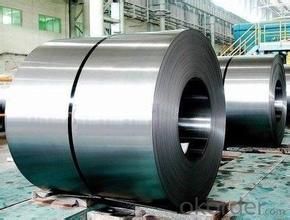
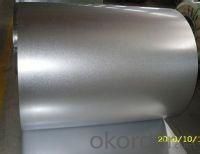
- Q: A friends of mine says he has balls of steel and i told him i would melt em off with lava. He said it wouldnt work. i disagree
- some lava is hot enough to melt steel. Mostly, though, the metal would react with the lava and get eaten up that way rather than directly melting. Most lava can contain an awful lot of iron and other metals without any difficulty and are rarely saturated with those metals.
- Q: it isn't a SIGG water bottle or any other brand, as it's from thingsengraved what I'm wondering is, is this just as good as a SIGG water bottle, or is there any difference?
- The problem with stainless steel water bottles is the steel takes even longer to decompose in our landfills then plastic its self. So it just adds to the waste. If you use steel be sure to recycle it when you are done using it. Another problem is the fact that we don't really make steel here anymore so you have to pollute the environment shipping steel here that the bottles are made from. It gets ship here on trucks, ships, and what not. Very big polluters!! You'd be better off just getting a reuseable bpa free plastic water bottle made in the usa. Or some of those expensive corn cups.
- Q: How are steel coils used in the production of steel tanks?
- Steel coils are used in the production of steel tanks by being cut and shaped into the desired size and shape of the tank. These coils are typically made of high-quality steel, which provides strength and durability to the tanks. The coils are processed through various manufacturing techniques like rolling, bending, and welding to create the tank's body, ensuring a seamless structure. Additionally, the coils can also be used to create the tank's base, lid, and other components, resulting in a complete and sturdy steel tank suitable for various applications.
- Q: What are the common methods of protecting steel coils from corrosion during storage?
- To safeguard steel coils from corrosion during storage, there are multiple commonly employed techniques. These methods aim to shield the steel coils from moisture and other environmental factors that could trigger corrosion. 1. VCI (Volatile Corrosion Inhibitor) Packaging: VCI packaging is extensively utilized for steel coil protection. It incorporates VCI materials into the packaging, such as plastic bags or films. These materials emit a vapor that forms a protective layer on the surface of the steel coils, effectively preventing the intrusion of moisture and corrosive agents. 2. Oil Coating: Another widely adopted approach involves applying a thin layer of oil onto the steel coil surface. This oil acts as a barrier, obstructing the contact between the steel and moisture or oxygen. It proves particularly effective for long-term storage or transportation situations. 3. Desiccants: Silica gel packets or similar desiccants can be placed inside the packaging to absorb any trapped moisture. By reducing humidity levels within the packaging, the risk of corrosion is minimized. This method is often combined with VCI packaging or oil coating. 4. Proper Ventilation: Adequate ventilation is crucial to prevent moisture buildup around the steel coils during storage. By facilitating the free circulation of air, humidity levels are reduced, and the formation of condensation, which can lead to corrosion, is prevented. 5. Controlled Environment: Storing steel coils in a controlled environment is an effective corrosion prevention measure. This entails maintaining constant temperature and humidity levels that are unfavorable for corrosion. Temperature and humidity control can be achieved using air conditioning or dehumidification systems. It should be noted that the choice of specific protection methods or combinations thereof depends on various factors, including storage duration, environmental conditions, and specific steel coil requirements. Regular inspections and maintenance are also vital to ensure ongoing corrosion protection.
- Q: A roll of 1 meters wide color steel roll about how many tons?
- Generally speaking, it will be about 4 tons, the export may be larger, but 10 tons of papers have not yet seen
- Q: How much should someone sell a 6 ft stainless steel counter? How about one with a sink?
- Ask for the best offer on OKorder and find out.
- Q: Please explain why steel is denser than wood.
- Steel is basically a mixture (not the compound) of iron and carbon. Iron, by itself is an element and so is carbon. The atoms of Iron are larger in size compared to carbon. All the atoms of all the elements, smaller or larger, are spherical. If naturally a solid, the atoms of all such elements have voids as their atoms are closely packed. You can imagine a basket of oranges; you could see that void or empty space (which I am speaking about) between four or more of the oranges put together. Now, when heated to more than about 1500 degrees celcius, Iron melts and atoms in molten form increase space between themselves. Raising the teperature to 1800 degree celcius, carbon is mixed with iron. At this stage it causes the spherical carbon atoms to fill in the spaces present amongst the spherical atoms of the iron. On cooling, already dense iron becomes denser because no space is left there between its atoms. This denser form of iron + carbon has become steel in which carbon is not more than 3 to 4% of the total volume. Wood is nothing but a fallen and dried tree's part. When green and alive, tree's stem and branches have pores in there texture, which are fillled with water and other biological fluids necessary for the life of the plant. When dried all the fluids, especially water gets evaporated. and the pore are empty now. The term Density, means mass divided by volume (kg / cubic meters). Iron + Carbon (the steel) so tightly packed and Iron having very high atomic weight is surely denser than wood with just carbon and a few other elements with no significant role to play in the mass calculation; particularly if their are empty pore spaces filled with air only. Imagine the mass (which common people mistakingly call the weight) in kilograms of a peice of steel with dimensions of 1 meter cube and imagine the same for the dried wood. What do you think---which one is denser?
- Q: I want to make a chess set out of stainless steel, but I'm not sure what type of mold I need or where I can go to have the steel melted and molded for me. Any ideas? I live in Southern, NJ.
- I'll buy one. You'll have to machine it from blocks... You could invest in a milling machine - they are like drill presses and lathes all together and more... If you hook it up to your computer, you can do a CNC milling, where you can get really creative and finely detailed. Stainless is heavy and hard, so it'll go through your bits, and you should use the super duty bits as well. I have always wanted an SS chess set, I made a board out of leather. It's really super awesome, just need your pieces now. Or make mine from Plutonium, or Tungsten Carbide.
- Q: Hey I just got a mini 14 manufactured in 1980. I also had some .223 Wolf steel cased HP rounds (about 200) that i could shoot throught it, but I was just wondering if its a bad idea to use this steel cased ammo...? Only the casing is steel i believe... and the bullet is copper jacketedthanks for your help
- I have had significant ejection and rechambering problems with Wolf semi-auto handgun ammo. It took forever to clean the fouling that the lacquered ammo generated too. I do not know about the rifle ammo, but I won't tempt fate over cheap rounds again.
Send your message to us
Hot-Dip galvanized/ aluzinc steel-SPCC from China
- Loading Port:
- Tianjin
- Payment Terms:
- TT OR LC
- Min Order Qty:
- 30 m.t.
- Supply Capability:
- 5000000 m.t./month
OKorder Service Pledge
OKorder Financial Service
Similar products
Hot products
Hot Searches
Related keywords
